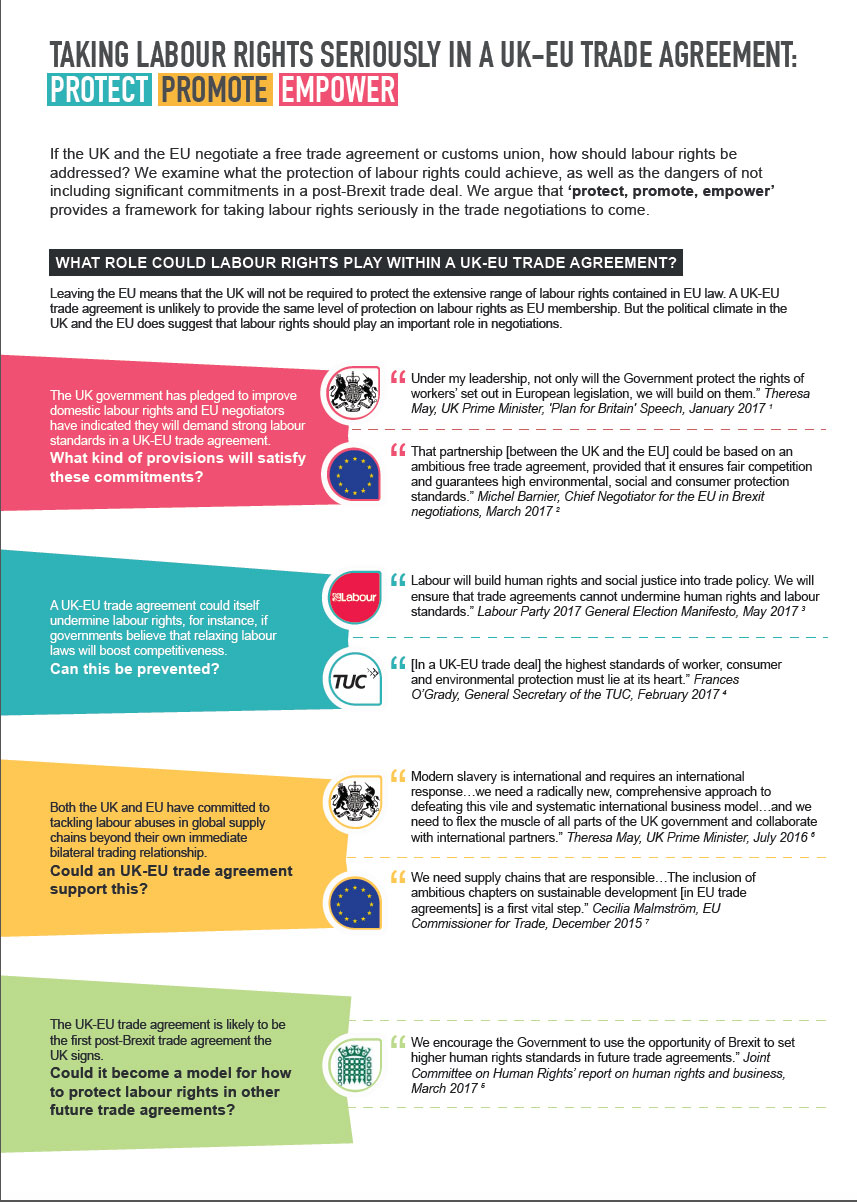Three events in the last 24 hours deepened my worries about the degree to which the UK government will be held to account for the ethics of its future trade policy. Liam Fox in the Philippines, Theresa May in Saudi Arabia and the publication of a report by the Joint Committee on Human Rights of the UK Parliament together gave me grave cause for concern. Here is why.
Liam Fox managed to be pilloried by everyone from the Guardian to the Daily Mail yesterday for saying that the UK ‘shared values’ with the brutal regime of the Philippines’ President Rodrigo Duterte. Dr. Fox was in the Philippines to talk about a potential trade deal with a leader who has publicly encouraged his citizens to kill drug addicts and once bragged about throwing people out of a helicopter.
Meanwhile, Theresa May was being forced to defend her trip to Saudi Arabia (also being wooed for a post-Brexit trade deal) at a time when the Saudi regime, using UK-produced weapons, is causing a humanitarian disaster in neighbouring Yemen. May’s foreign policy doctrine, she told a reporter, is “that everything we do is in our British national interest…It’s in our British national interest to have good relations around the world so we can trade around the world…it’s in our national interests to ensure that the values that underpin us as Britons are values that we promote around the world – and that’s what we’re doing.”
Talk of ‘British values’ as the ethical underpinning of our trade relationship is extremely dangerous. Even when teaching British values in British schools, the term is open to all kinds of worrying interpretations, as research by my colleague Dr. Ali Struthers has demonstrated. Those dangers are greatly exacerbated when the conversation becomes the bedrock of ethical discourse between entire countries. The term is so malleable that it is only when we are told we share the same values as one of the world’s most brutal political leaders that people sit up and take notice.
This is where terms like human rights can play a role. They create specificity. The Saudi regime regularly detains and imprisons critics, human rights defenders and minority rights activists on vaguely worded charges; women are faced with discrimination in both law and practice and are insufficiently protected against sexual and other violence; significant numbers of executions are carried out, including of juveniles. And of course there are Saudi actions in Yemen. These are all clear violations of human rights. Using the term ‘human rights’ allows us to measure the ethical performance of the countries we want to trade with against internationally recognized standards. But what should we do when they fall short?
Both Liam Fox and Theresa May claim to be raising concerns with their interlocutors. But leaving the EU means that we have massively reduced the chances of our concerns being taken seriously. Instead of speaking on behalf of a potential market of more than 500 million consumers, we now speak as a market of 65 million. This diminishes our bargaining power. We need to very carefully scrutinize the claims that what remains of our influence will be used on ‘values’ rather than commercial interests.
The UK Parliament will be vital in that scrutiny process in the years to come. It was therefore disappointing to see the Parliament’s Joint Committee on Human Rights in their report published today on business and human rights, fail to show a detailed and nuanced understanding of trade and human rights issues (they were much better on pointing out the limitations of other government policy on business and human rights).
First, in their discussion of the EU’s trade policy (which, it is argued, could be a model for future UK trade agreements), they mix up human rights provisions, sustainable development provisions and labour provisions as if they are one and the same thing. They are not. Human rights and labour standards are handled very differently in different parts of EU agreements – UK parliamentarians need to understand how relevant mechanisms operate much better, if they are to evaluate their effectiveness.
Second, the report welcomed the UK government’s commitment to include human rights provisions, equivalent to those in EU trade agreements, in its own trade deals. There are limitations with the EU’s labour and human rights provisions (as I have previously discussed) which should be more thoroughly interrogated.* But, most fundamentally, this endorsement by the Joint Committee on Human Rights fails to recognize the complexity of translating human rights in law into human rights in practice.
One, relatively optimistic study of EU practice on trade and human rights concluded that “human rights conditionality seems to have some clear results with third countries over which the EU holds substantial economic leverage, which might … suggest that the latter is more important than legalisation for promoting compliance.”
We need a UK Parliament that recognizes our heavily reduced post-Brexit economic leverage, and in light of that, carefully scrutinizes our government’s efforts to strike trade deals with countries with very dubious human rights records. And we need human rights advocates within the UK Parliament who much more carefully interrogate what a truly ethical UK trade policy actually entails.
* The Joint Committee’s report also encourages the UK government to do better than the EU on enforcement (but the devil here is in the detail). It also encourages assessment of human rights impacts of trade agreements before entering into deals – the EU already does this, but rather superficially. Again more specificity is required about what a human rights impact process should entail.


